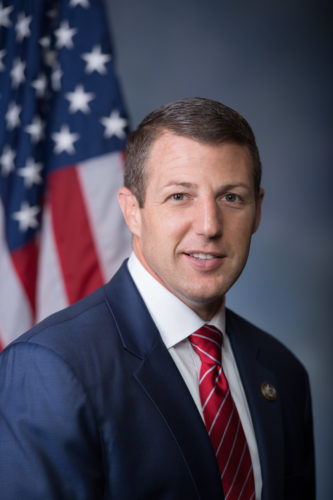By Congressman Markwayne Mullin
Farmers, ranchers, and small businesses are the backbone of Oklahoma’s economy. Unfortunately, they are all too familiar with the negative effects of the federal government’s heavy handed regulations and complicated red tape. For many of them, the Endangered Species Act (ESA) is one of many sets of federal regulations causing more harm than good. Make no mistake, Oklahomans understand the value of nature, but we are certainly better stewards of our own backyard than a bureaucrat in Washington, D.C.
The Endangered Species Act of 1973 was passed due to concerns about preserving and maintaining endangered animal populations. However, the concerns from 45 years ago that drove the legislation are not the same concerns that exist today. Today, the ESA looks a lot less like a preservation plan and a lot more like blatant government overreach. While the ESA has helped keep certain species from complete extinction, it has not allowed those species to recover to sustainable population levels. When it does recover, states are not notified of the change—ignoring all conservation efforts that they have made.
I am a cosponsor of several bills to modernize the Endangered Species Act, including the Endangered Species Transparency and Reasonableness Act. It mandates that data used by federal agencies for ESA listing decisions is made publicly available and accessible online. States should be able to weigh in on decisions about in-state conservation efforts and transparency should be encouraged especially in the listing and delisting process. Another, the Ensuring Meaningful Petition Outreach While Enhancing Rights of States Act of 2018 (EMPOWERS) Act ensures that federal agencies consult with states before making a final decision about conservation regulations.
In Oklahoma, the American burying beetle and the lesser prairie-chicken continue to be on the endangered species list, despite a substantial increase in conservation efforts that should have removed them from the list. I am proud of Oklahoma’s track record in the expansion of land for endangered species conservation. In our state, 13 million acres have been protected for endangered species. Oklahoma’s persistence led to the development of an effective conservation plan. Every time a firearm, fishing pole, hook, bullet, motor boat, or boat fuel is sold, a portion of that sale funds wildlife conservation. This model allows us to reinvest in preserving Oklahoma’s native wildlife.
The Endangered Species Act of 1973 says that the states and federal government “should cooperate wherever practicable.” The federal government should be working with states, not against them. Modernizing the ESA will let states to have more input and allow farmers, ranchers, and small business owners the opportunity thrive. I will continue working in Washington to ensure Oklahomans no longer suffer the negative effects of this outdated legislation.


